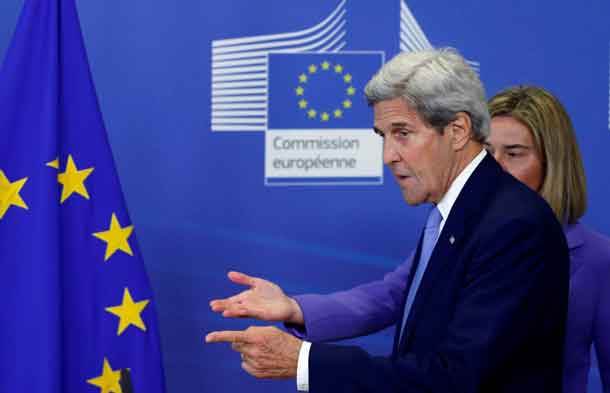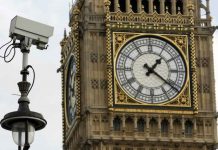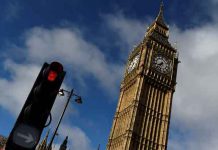

LONDON/BRUSSELS (Reuters) – It is important that “nobody loses their head” as the European Union and the United Kingdom grapple with the effects of a referendum in which Britons voted to leave the 28-nation bloc, U.S. Secretary of State John Kerry said on Monday.
Britain’s referendum last week to leave the bloc sent global stocks tumbling and dealt an unprecedented blow to Europe’s post-World War Two order, while triggering a political meltdown in Britain itself, with the ruling Conservatives and opposition Labour Party both in disarray.
Prime Minister David Cameron has announced his resignation and said it will be up to his successor to begin formal exit negotiations, leaving unresolved the overall strategy, the timetable for an exit or even the name of the next leader.
“It is absolutely essential that we stay focused on how in this transitional period, nobody loses their head, nobody goes off half-cocked, people don’t start moving on scatter-brained or revengeful premises,” Kerry told reporters in Brussels, standing next to EU foreign policy chief Federica Mogherini.
Kerry repeated his plea hours later in London, where he emphasized Washington’s “special relationship” with Britain and said the United Kingdom’s role in the world would be changed, but not diminished as a result of the EU vote.
While not taking a stance on how swiftly Britain should now exit the EU, he said: “The key is that everybody does this in the spirit of looking for the best way forward, so that economies are not injured, so that security interests are not set back.”
British Foreign Secretary Philip Hammond, appearing with Kerry, said he hoped for an “amicable” negotiation with the EU, but acknowledged other members’ ire at London.
“The wound is quite raw,” Hammond said. “It will take some time for the wound to settle down.”
Kerry was meeting later with the outgoing Cameron.
U.S. President Barack Obama had personally called on British voters before the referendum to remain in the EU, and warned in April that the UK could be at “the back of the queue” for trade talks with Washington if it left the EU.
“The president’s concerns that he expressed are valid concerns,” Kerry said on Monday, adding that Washington is “currently evaluating the impact” of the so-called Brexit vote on a proposed U.S.-EU trade accord.
SECURITY
In Brussels, Kerry also met NATO Secretary General Jens Stoltenberg and stressed the importance of the military alliance in the face of the British vote.
“We have high expectations of a very strong NATO meeting and important deliverables,” Kerry said of a NATO summit planned for Warsaw on July 8-9. “That will not change one iota as a consequence of the vote that has taken place.”
NATO is expected to announce the strengthening of the alliance’s eastern flank, a response to Russia’s annexation of Crimea from Ukraine in March, 2014, and backing for rebels who have been fighting government troops in east Ukraine since then.
“After the UK decided to leave the European Union I think that NATO has become even more important as a platform for cooperation between Europe and North America but also defence and security cooperation between European NATO allies,” said Stoltenberg, whose own country Norway is in NATO but not the EU.
By Warren Strobel and Gabriela Baczynska (Editing by Peter Graff and Hugh Lawson)







